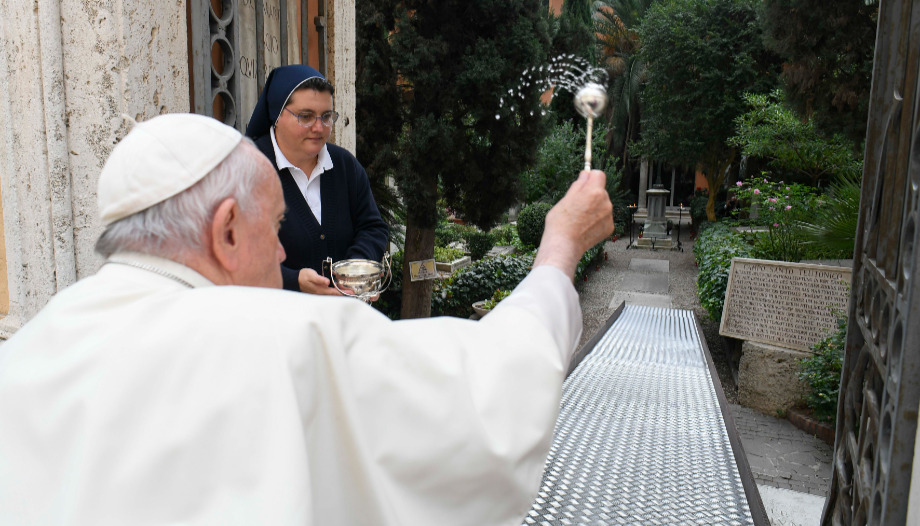Pope Francis presided at Holy Mass in suffrage for cardinals and bishops who died during the year. At the homily explained how Christians live "in the hope of hearing one day those words of Jesus: 'Come, blessed of my Father' (Mt 25:34). We are in the waiting room of the world to enter heaven". Man's passage on earth can be a happy one if one considers that the hope placed in eternal life, where "the Lord will 'abolish death forever' and 'wipe away the tears from all faces'", will become a reality.
Thinking of heaven
The Pope encouraged us to nourish our desire to reach heaven: "It is good for us to ask ourselves today if our desires have anything to do with heaven. For we run the danger of constantly aspiring to things that pass, of confusing desires with needs, of putting the expectations of the world before those of God. But to lose sight of what matters in order to chase after the wind would be the greatest mistake of life".
The Pontiff encouraged us to consider the smallness of our desires in comparison with the eternal prize. Many things that are important to us in this life will hardly be important in the next: "The best careers, the greatest successes, the most prestigious titles and awards, the accumulated riches and earthly gains, all will vanish in a moment. And all the expectations placed in them will be dashed forever. And yet how much time, effort and energy we spend worrying and grieving over these things, letting the tension toward home fade away, losing sight of the meaning of the journey, the goal of the journey, the infinity to which we are tending, the joy for which we breathe!"
The Holy Father encouraged to ask oneself if one truly hopes in the resurrection of the dead and the life of the future world. "How is my hope? Do I go to the essentials or do I get distracted by many superfluous things? Do I cultivate hope or do I keep lamenting because I value too much so many things that don't matter?"
God's judgment
Charity is the most important virtue for the Christian, which is why in "the divine tribunal, the only head of merit and accusation is mercy towards the poor and discarded: 'Whatever you did it to one of the least of these my brethren, you did it to me,' Jesus judges. And the Pope went on to say: "Let us be very careful not to sweeten the taste of the Gospel. Because often, for convenience or comfort, we tend to water down the message of Jesus, to dilute his words. Let us admit it, we have become quite good at making concessions with the Gospel".
To gloss over how this mistaken and partial simplification of the Gospel often takes place, Pope Francis pointed out several examples, such as when one thinks: "feed the hungry yes, but the issue of hunger is complex and I certainly can't solve it. Help the poor yes, but then injustices have to be dealt with in a certain way and then it is better to wait, also because if you compromise then you risk being bothered all the time and perhaps you realize that you could have done better. Being close to the sick and the imprisoned, yes, but on the front pages of newspapers and in social networks there are other more pressing problems, why should I care about them? Welcoming immigrants, yes, but it's a complicated general question, it's about politics... And so, by dint of buts, we make of life a commitment to the Gospel".
This degradation of the Christian message makes one become a theorist of the problems and does not commit oneself to concrete solutions, that one discusses a lot and does little, that one looks for answers more in front of the computer than in front of the Crucifix, on the internet than in the eyes of the brethren: "Christians who comment, debate and expound theories, but who do not even know a poor person by name, who have not visited a sick person for months, who have never fed or clothed someone, who have never befriended a needy person, forgetting that 'the program of a Christian is a heart that sees' (Benedict XVIDeus caritas est, 31).







